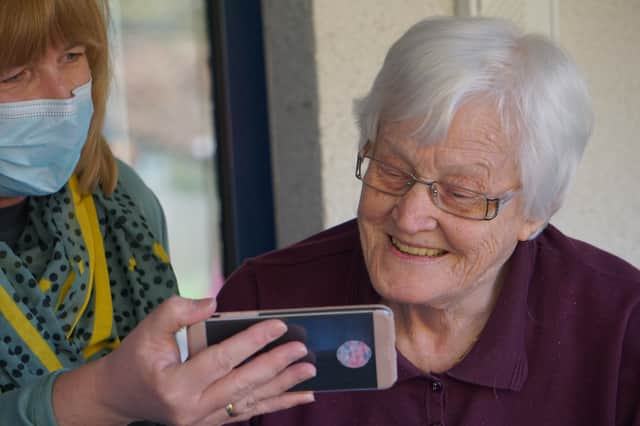Community Care: People care for each other


From taking special care of the elderly to ensuring the vulnerable people in our communities have the right kind of services available, we take great pride in helping where we can.
The area is also filled with businesses and charities that help the neediest on a daily basis.
Advertisement
Hide AdAdvertisement
Hide AdWithout their help and support, many local residents would go without the provisions they need to live a comfortable and fulfilling life.
Most of us want to live independently in our own homes for as long as possible, but as we get older we may need some support and assistance.
You may need help with personal care, such as getting in and out of bed, washing and bathing, preparing meals, shopping or cleaning.
But what kind of support is available?
There is a wide range of help available and you may be legally entitled to services to meet your needs, although many of these are means-tested.
Advertisement
Hide AdAdvertisement
Hide AdYou may also be eligible for home carers or a personal assistant to help you.
The kinds of services available to help you stay in your own home include getting in and out of bed, bathing and washing, preparing meals, cleaning, fitting equipment and adaptations to your home such as stairlifts and bath seats, and going to a day centre.
Contact your local council’s adult social services department. Explain you need some help and ask for a care assessment to assess your needs. There is no charge for this and you are entitled to one regardless of your income and savings.
A care assessment will usually take place in your home and may include people such as an occupational therapist, social worker and nurse. The person assessing you should take into account the emotional and social side of your life as well as any physical difficulties you may experience.
Advertisement
Hide AdAdvertisement
Hide AdThe assessment should reflect your needs and wishes. If you already have someone caring for you, their needs and wishes should also be taken into account. Following the assessment, a care plan will be agreed and written out.
Most local councils charge for the services at home that they provide. Some place an upper weekly limit on the amount you have to pay. Before charging you for services, your local council must work out how much you can afford to pay and this amount should leave you with a reasonable level of income.
Check your local council’s website for their charging information.
If you’re assessed as needing community care services you may be able to choose direct payments so that you can purchase and arrange your own care. These are regular payments paid by the council directly to you or a person you trust.
Advertisement
Hide AdAdvertisement
Hide AdMost local councils don’t provide support if you just need a helping hand with your housework, gardening or shopping.
Contact a local voluntary organisation such as your local Age UK or the Royal Voluntary Service to see whether they may be able to provide services for you.
The UK Home Care Association can give you details of home care providers that follow its code of practice.
Your local adult social services department should be able to provide you with details of approved private agencies.
Ask friends or relatives for recommendations.
Advertisement
Hide AdAdvertisement
Hide AdIf you want to employ a care worker directly, you must draw up a contract of employment so that you are both clear on what is expected. Be aware of financial considerations such as National Insurance contributions. Find out more about directly employing a carer from the HMRC.
For information on home help, contact Age UK on 0800 169 65 65.